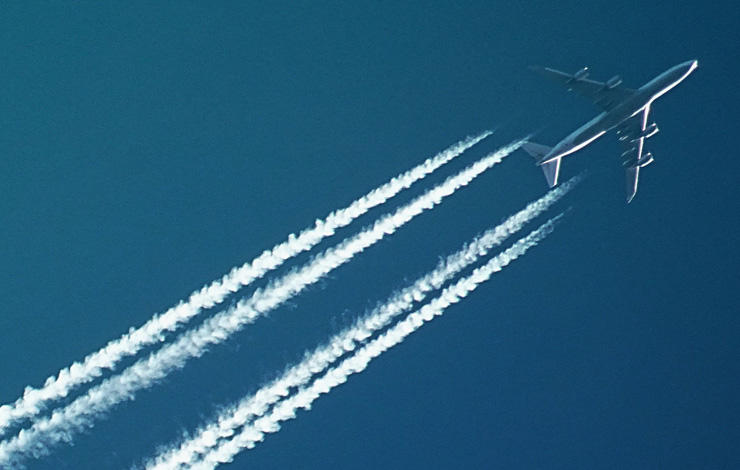03-09-2019

Between July 2017 and May 2018, for the first time the airborne levels of ultrafine particle concentration (UFP) in the vicinity of Lisbon's Humberto Delgado Airport were evaluated. The study, developed at FCT NOVA's Department of Environmental Science and Engineering (DCEA) and at the research center CENSE, found out that people who work, live or spend a considerable amount of time near the airport are exposed to high concentrations of UFP, which constitutes a considerable risk to their health at the outset.
The Air Quality Monitoring Network (RMQA) does not yet impose limits on UFP that are 700 times smaller than a hair, although evidence points to its influence on health deterioration. The UFP input into the human body is mainly processed through three ways (respiratory, dermal and ingestion) and due to its size, rapidly reach the bloodstream and spread through all human body organs. Prolonged exposure to UFPs may induce or worsen pulmonary and cardiorespiratory health and is associated with increased hospitalization and mortality rates, particularly due to lung cancer. Even short-term exposure has proven to be bad for your health. UFP have also been associated with neurological diseases and problems with fetal and cognitive development in children. The studies are not yet conclusive as they are so recent but indicate a serious need for monitoring.
This groundbreaking study, published this September in the journal "Atmospheric Pollution Research", points out that ultra-fine particle concentrations are 18 to 26 times higher in areas influenced by air movements. The case of the Lisbon airport assumes special relevance due to its location: within the city center, surrounded by residential, services, business and recreational areas, schools, sport complexes, hospitals, among others.
This research is associated to Margarida Lopes's doctoral thesis, at the PhD Program in Environment and Sustainability of FCT NOVA, with guidance from Francisco Ferreira, Professor and Researcher at DCEA.
Press
"Aviões da Portela estão a afectar “fortemente” a qualidade do ar" (Público)
"Partículas ultrafinas dos aviões fazem mal à saúde" (Diária Notícias)
"Aviões estão a afetar “fortemente” a qualidade do ar em Lisboa" (NIT)
"Poluição. Estudo encontra partículas ultrafinas à volta do aeroporto de Lisboa" (TSF)
"Partículas causadas por aviões afetam qualidade do ar perto do aeroporto" (Notícias ao Minuto)
"Qualidade do ar perto do aeroporto de Lisboa afetada por partículas tóxicas" (Jornal de Notícias)
"Qualidade do ar junto ao aeroporto de Lisboa afetada por partículas ultrafinas" (Renascença)
"Partículas ultrafinas dos aviões afetam qualidade do ar perto do aeroporto" (ECO)